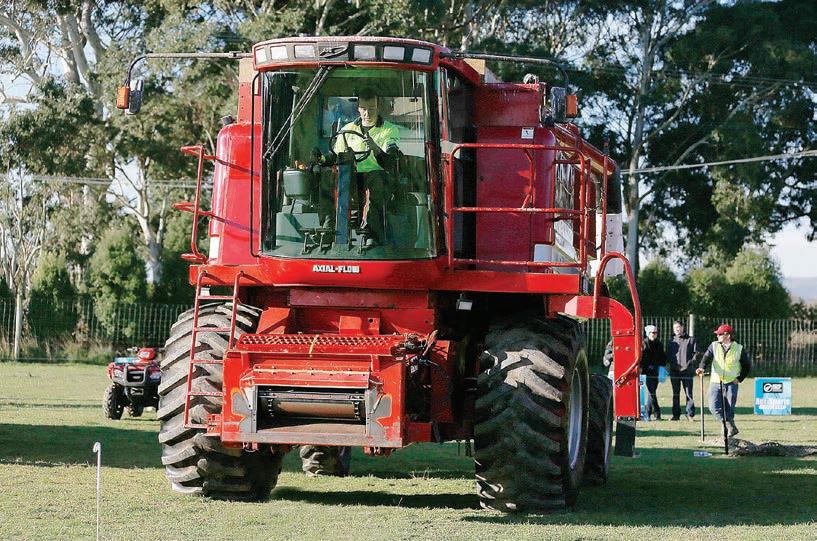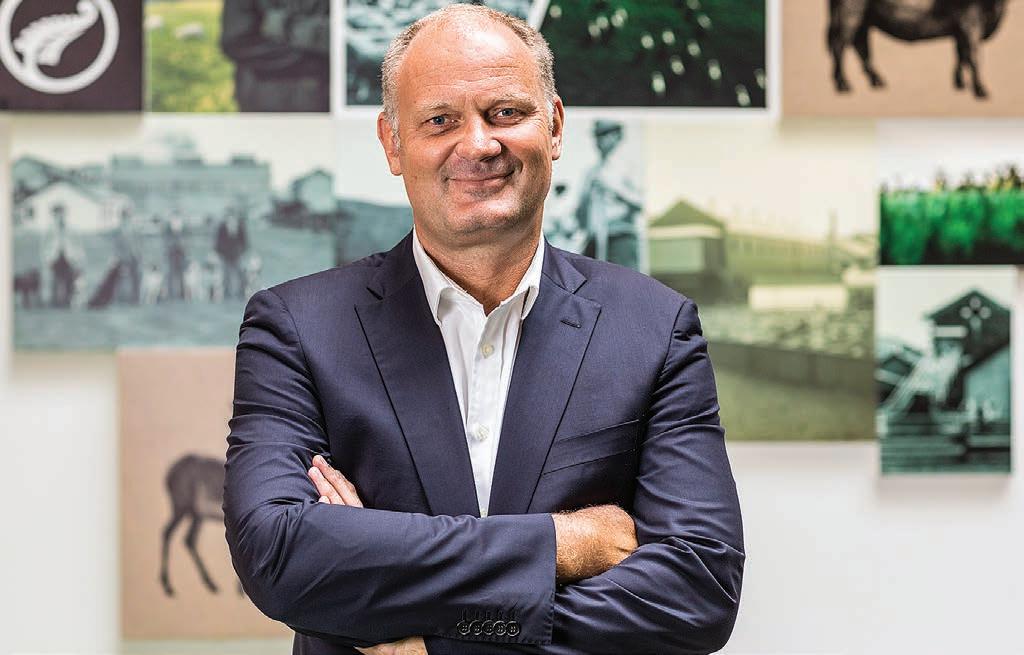
15 minute read
Farmers urged offload now
Warning over looming processing backlogs
Neal Wallace neal.wallace@globalhq.co.nz
MEAT plants are opening earlier and farmers are urged to offload ewes and lambs now, rather than holding on to them to avoid looming processing backlogs.
Silver Fern Farms (SFF) is warning space could become an issue in the North Island within two weeks and opened its Waitotara plant near Whanganui two weeks earlier than planned and is offering assistance to send ewes to the South Island for grazing and slaughter.
In a market update, chief executive Simon Limmer says a labour shortage, disrupted shipping schedules and uncertain container availability hangs over the traditional early season surge in livestock availability, which could create a space backlog.
Limmer says pressure on the South Island network is forecast for late November and he urged all farmers to work with livestock representatives to plan supply.
“We strongly encourage suppliers who can offload lambs and ewes to do so now to avoid lengthy delays that are expected in the coming weeks,” Limmer said.
The warning does not come as a surprise to AgriHQ senior analyst Mel Croad, who says they have been forecasting this for some time.
She notes it will impact all processors.
Spring in parts of the North and South Islands has been wet and cool, which has slowed lambs putting on condition and, in areas which have had several unfavourable seasons, ewes are not performing as expected.
“In early areas, farmers are only getting half their usual weaning drafts away, or they are having to wait one or two weeks longer for liveweights to pick up,” Croad said.
She says the seasonal influx combined with slower chain speeds, due to a shortage of meat workers and shipping issues, is likely to create space congestion in North Island plants from December and in the South Island in late December to January.
Limmer says lamb pricing is forecasted to ease from $9.40/kg at present to about $8 by Christmas, but Croad says if prices fall $1.40/kg in six weeks, it will not be because of weak markets.
“We don’t see that degree of downside in overseas markets for lamb this side of Christmas,” Croad said.
All overseas markets for lamb are strong and have yet to show any weakness, but Croad acknowledges prices could be influenced by domestic issues such as labour shortages, shipping issues and expected space congestion.
These factors will result in some pricing pressure, but AgriHQ is still forecasting an average price above $8.50/kg for December with further downward adjustment in the new year as markets respond to increased export lamb volumes.
Mel Croad AgriHQ
PRESSURE: SFF chief executive Simon Limmer says pressure on the South Island network is forecast for late November and he urged all farmers to work with livestock representatives to plan supply. HAT-TRICK: Alliance’s handpicked beef won three gold medals at the recent World Steak Challenge.

NZ wins big at World Steak Challenge
Staff reporter
THREE New Zealand red meat producers won big at the World Steak Challenge in Dublin.
Anzco and First Light Foods won a gold medal each in the ribeye section, while Alliance Group’s Pure South Handpicked 55-Day Aged Beef won three gold medals.
Hundreds of beef suppliers from around the world had their finest products judged by an independent panel of chefs and experts at the prestigious event.
Alliance general manager of sales Shane Kingston says the win reaffirmed the status of Handpicked 55-Day Aged Beef as among the world’s best.
“Handpicked 55-Day Aged Beef is in demand across the globe and we expect this to continue. It is a remarkable product with unprecedented levels of tenderness and a milder beef flavour profile.
Anzco general manager sales Rick Walker says he’s thrilled with the recognition.
“Greenstone Creek is hand-selected by master graders at our Eltham site who ensure only the best goes into a Greenstone Creek bag,” Walker said.
“Every Greenstone Creek product is then aged for 21 days resulting in meat that’s beautifully marbled and tender.
“Greenstone Creek is featured at 23 top New Zealand restaurants and we’re sure the award will heighten interest in the premium range.”


PRIMARY SECTOR
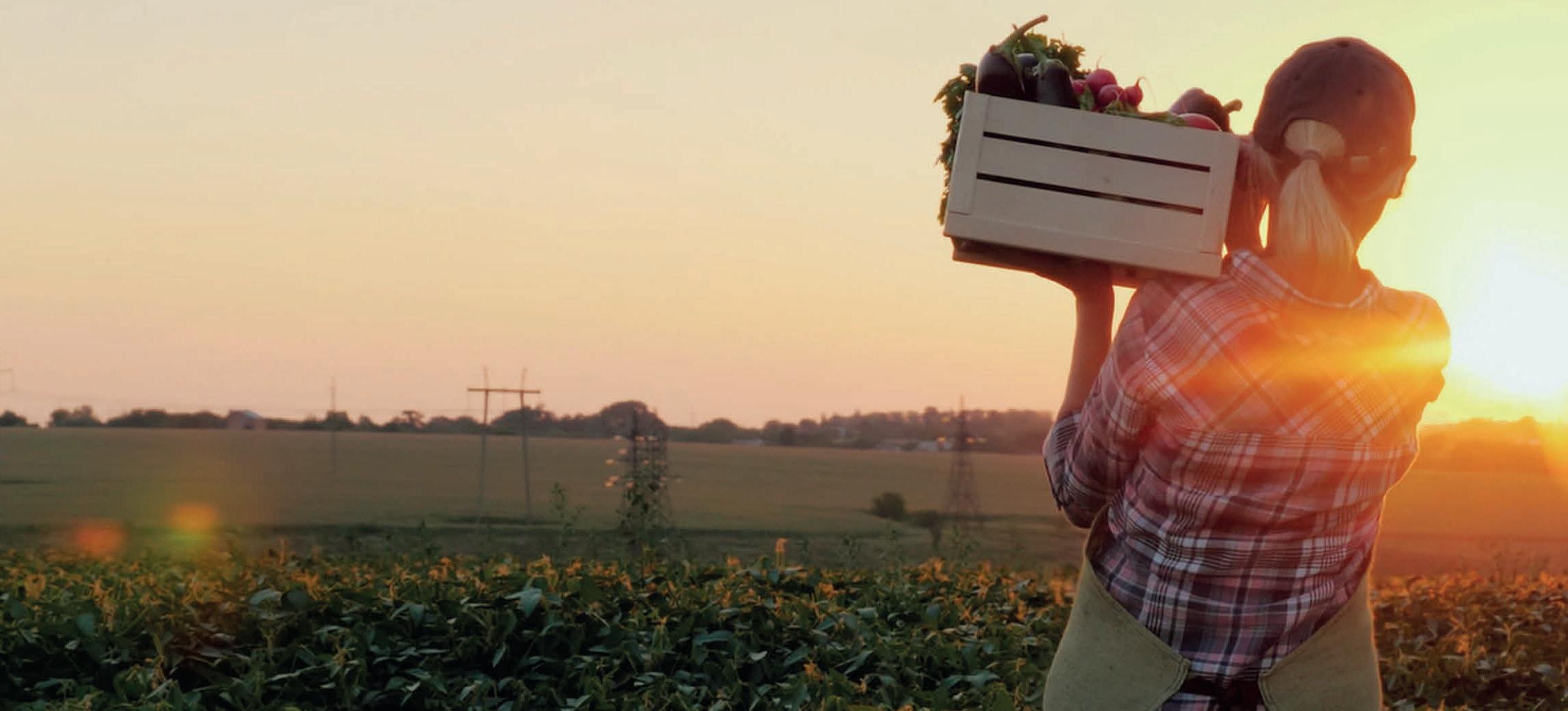
MARKETERS FORUM
EVENT THEMES:
• Overview of New Zealand’s
Primary Industries • Trade & Export • Elevating the Primary Sectors’
Digital Presence • Beyond Greener Pastures - A better future for NZ’s
Primary Industries
OFFICIAL MEDIA PARTNER
FARMERS WEEKLY – farmersweekly.co.nz – November 15, 2021 5 Capital restructure to go to a vote
Hugh Stringleman hugh.stringleman@globalhq.co.nz
FONTERRA’s flexible shareholding proposal and capital restructure will go to shareholders at a special general meeting on December 9, when it is expected to receive strong support.
Chair Peter McBride says throughout the consultation period shareholder feedback has been so supportive that the board and management now want to send the proposal to the vote.
He would not have done that without widespread support for the amended proposal published on September 23, to avoid the risk of a seriously divided cooperative.
“Protecting a strong farmerowned co-operative of scale is in all of New Zealand’s interests,” McBride said.
“Our scale efficiencies deliver value, our milk price sets the benchmark, and we can invest in on-farm support, innovation, new markets and product development.”
Fonterra’s Co-operative Council has already voted 92% in support of the recommended changes.
Council chair James Barron says a comprehensive consultation had produced contributions that added value to the outcome.
“As a result, council is confident that the final proposal will give appropriate protections to supplying shareholders’ ownership and control,” Barron said.
“Ultimately, however, the mandate for change must come from all shareholders.”
The constitutional amendments will require 75% approval in votes cast by eligible farmers in person and online at or before the SGM.
Changes will also be needed to the Dairy Industry Restructuring Act, for which the Government has so far been non-committal, saying it needed to see what Fonterra’s farmers thought of the reforms.
The changes unravel Trading Among Farmers, implemented in 2012, and break the sharemarket symbiosis between Fonterra supply shares (FCG) and Fonterra Shareholders’ Fund (FSF) units.
The FCG price presently is around $3.25 and the FSF price $3.90.
After a lengthy planning and consultation process, what was dubbed the flexible shareholding structure on September 23 allows for a minimum supply requirement of one share for every three kilograms of milksolids produced.
The flexibility allows farmers to increase and decrease their shareholding during their farming careers, utilising their capital in different ways.
A maximum shareholding limit of four times production would also be set.
Only farmers would be able to buy and sell supply shares and the FSF would be capped, removing the mechanism of swapping shares for fund units.
More types of farmers could hold shares, such as sharemilkers, contract milkers and farm lessors.
New farmers would have up to six seasons to share up to the minimum requirement.
Exiting shareholders would have 15 seasons, reducing to 10 seasons over time, to sell their shares.
Additions just announced are the introduction of thresholds on the total number of shares on issue (plus or minus 15% of total milk supply), and less than 25% of shares to be held by ceased suppliers.
The overall limit on the size of the FSF will be reduced from 20% to 10% of total shares on issue, but that is rather academic seeing the fund is currently at 6.7%.
The chair of the capital review subcommittee of the FSF management company, John Shewan, says it was disappointing that Fonterra’s leaders had not included a buyback of the fund units.
The halving of the upper limit on the size of the fund was welcomed, leaving room for the possibility it could grow in future for more liquidity.
Unit holders will not be required to vote on the changes, because they are not shareholders.
But about half of the FSF units are owned by present or former farmers.
Shewan repeated that implementation was dependent on 75% shareholder vote approval and legislative changes within the DIRA.
Fonterra is aiming for June 1, the start of the next dairy season.
On November 17, Fonterra will send out to farmers the Notice of Meeting for the SGM, containing the details of the constitutional amendments and the same for the annual meeting and the voting period begins the following day.
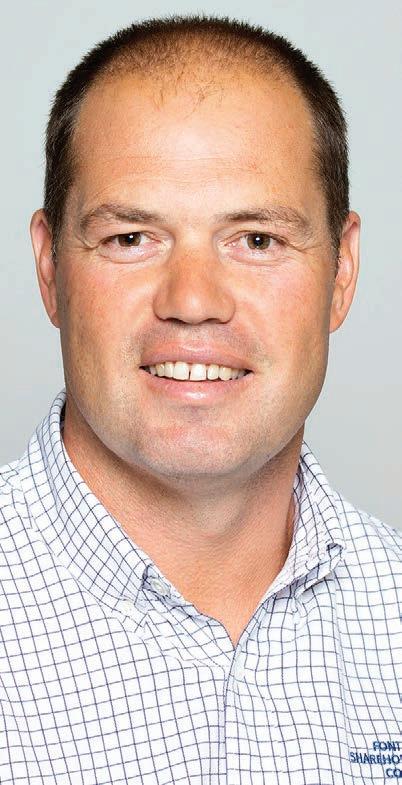
RESULT: Fonterra Co-operative Council chair James Barron says a comprehensive consultation had produced contributions that added value to the outcome.
Scholarships aim to build skilled workforce
Staff reporter
PRIMARY industry scholarships continue to offer young people pathways to future careers in the sector.
Applications are now open for four Meat Industry Association (MIA) undergraduate scholarships, providing $5000 a year for each year of study and one post-graduate award of $10,000 a year for each year of study, up to a maximum of three years for both. The association also runs a mentoring programme connecting the scholars with industry leaders.
MIA chief executive Sirma Karapeeva says the programme is aimed at scholars from across a wide range of study areas, who are looking to contribute their skills to New Zealand’s largest manufacturing industry.
“Our scholarships provide a great pathway into a productive, innovative and progressive sector. Attracting skilled people and supporting their development is essential to the success of the industry. That in turn is critical to the prosperity and wealth of the country,” Karapeeva said.
Current MIA scholars range from undergraduates in their first year of study, through to those undertaking Masters or PhD programmes. They include students of agribusiness, commerce, marketing, food sciences, veterinary science, engineering law, design technology and musculoskeletal health.
Scholars may also have the opportunity of part-time or vacation work in the meat industry.
Scholarship applications must be submitted by December 8. For further details and to download an application form, see the ‘Join the Industry’ section at www.mia. co.nz
Meanwhile, seven young people are joining the Ngā Karahipi Uru Rākau – Forestry Scholarship programme.
Te Uru Rākau – New Zealand Forest Service director of business and spatial intelligence Debbie Ward says the scholarship programme offers students a pathway to higher-level study, where they gain the skills, expertise and capabilities, which the forestry and wood-processing sector needs now and into the future.
The successful scholarship recipients for the 2022 academic year are: Paula Tucker Camano from Hamilton; Phoebe Naske, Gisborne; Stephen Thompson, Rotorua; Emma Plomp, Invercargill; Joe Falloon, Masterton; Tyler Rowe, Wellington; and Whanarua Edmonds, Pukehina.
Festive Feast
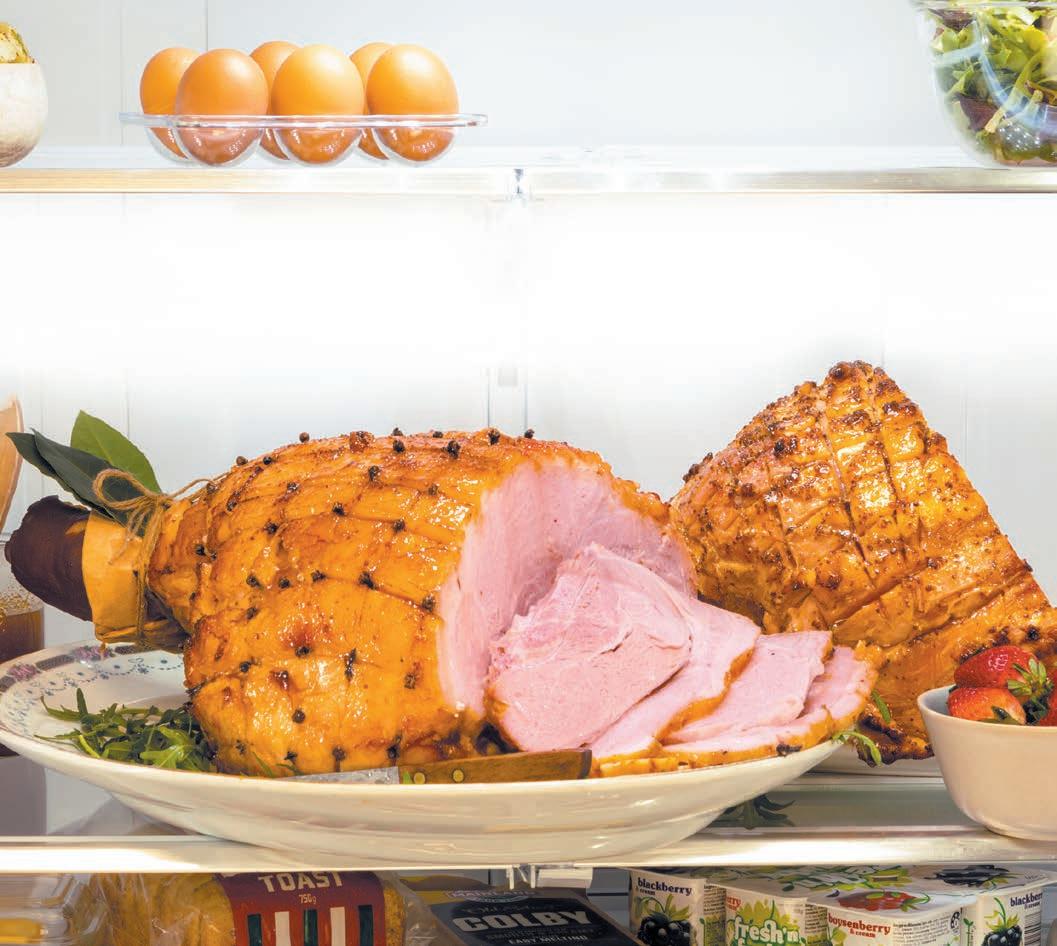
Enjoy a delicious ham on the bone or boneless leg ham. Yours this season, when you purchase selected Boehringer Ingelheim products from your local vet clinic.
Only available from participating vet clinics with qualifying purchases.
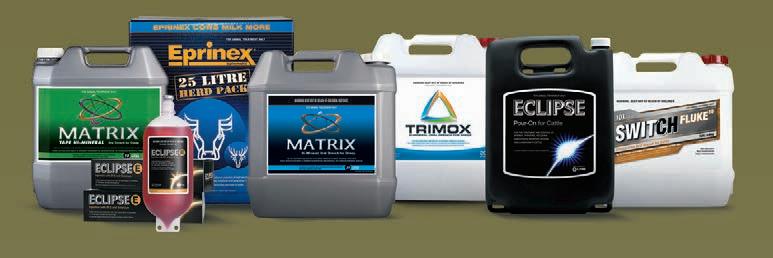
1/2 HAM QUALIFYING PURCHASES: 1 x 20 L ARREST® C, 1 x ARREST® C Calf Pack, 2 x 20 L ARREST® Hi-Mineral, 4 x 500 mL ECLIPSE® E Injection, 4 x 500 mL or 1 x 3 L ECLIPSE® E Injection with B12 & Se, 1 x 2.5 L ECLIPSE® Pour-On, 2 x 20 L EXODUS® Se, 1 x 20 L FIRST® Drench Hi-Mineral, 4 x 500 mL GENESIS® Injection with B12 & Se, 1 x 5 L GENESIS® Ultra Pour-On, 1 x 20 L GENESIS® Ultra Hi-Mineral, 2 x 10 L or 1 x 20 L Iver MATRIX® Tape Hi-Mineral, 1 x 20 L Iver SWITCH Tape Hi-Mineral, 4 x 500 mL IVOMEC® Plus Injection, 1 x 20 L MATRIX®, 1 x 20 L MATRIX® Hi-Mineral, 1 x 10 L or 20 L MATRIX® Mini-Dose Hi-Mineral, 2 x 10 L or 1 x 20 L MATRIX® Tape Hi-Mineral, 1 x 20 L POLERIZE®, 1 x 20 L SWITCH Oral Drench, 1 x 20 L SWITCH C Hi-Mineral, 1 x 20 L SWITCH Hi-Mineral, 1 x 20 L TRIMOX® Hi-Mineral. 2 x 1/2 HAM QUALIFYING PURCHASES: 1 x 5 L ECLIPSE® Pour-On, 1 x 25 L EPRINEX® Pour-On, 1 x 20 L MATRIX® C Hi-Mineral, 1 x 10 L SWITCH Fluke 10.
*Promotion Ends 22/12/21. While stocks last.
FARMERS WEEKLY – farmersweekly.co.nz – November 15, 2021 7 Beef exports’ milestone quarter
NEW Zealand’s red meat exports rose 28% to $2.2 billion for the third quarter compared to the previous year, according to an analysis by the Meat Industry Association (MIA).
The increase continued the trend of strong growth for the red meat sector in recent months, with September exports alone reaching $642 million.
The major markets for the third quarter of the calendar year were China, with exports up 57% to $830m, the United States, up 35% to $542m, and Japan, increasing 61% to $109m.
MIA chief executive Sirma Karapeeva says the red meat industry is earning important revenue for the country when other parts of the economy are significantly impacted by the covid-19 pandemic.
“Beef exports in particular have continued their strong run, with the volume of exports for the third quarter increasing 22% to 119,441 tonnes and the value increasing 37% to $991m,” Karapeeva said.
“This was the first time that the volume of beef exports has been over 100,000t in the third quarter, which is a remarkable result for New Zealand.
“Australia is historically the largest beef exporter to the US, but its exports are significantly down this year due to herd rebuilding. Argentina is another important, although smaller, exporter to the US but its exports are also down, largely due to the Government’s beef export restrictions and the high demand for beef in China.
“China’s beef imports have continued to grow and New Zealand has benefited from this demand, with exports growing by 50% to 51,053t, worth $386m, for the quarter.”
Beef exports to NZ’s other major market, the US, also increased by 5% to 37,285t, worth $329m, for the quarter.
While sheepmeat export volumes declined by 8% to 61,944t for the quarter, strong prices in key markets saw the value increase by 10% to $701m. The average FOB value for sheepmeat exports for the quarter was $11.31/kg compared to $9.46/kg in the same period last year.
The major sheepmeat markets were China, increasing by 42% to $334m, and the US, up by 71% to $108m.
Exports of co-products increased even more than sheepmeat and beef, up 42% for the quarter to $475m. The largest increase was in tallow exports, up 239% to $66m, but exports of all co-products categories increased compared to last year.
Offal prices rose, up 56% to $88m in the third quarter, particularly beef. The volume of beef offal exports grew by 12% to 10,576t year-on-year, but the value increased 80% to $75m.
“Co-products, such as tallow, offal, casings and tripe are increasingly becoming an important part of the industry’s product and market diversification strategy,” she said.
“Co-products account for 18% of the industry’s total export value. This highlights the importance for our sector of being able to access sufficient labour to be able to save and produce a wide range of co-products to maximise the value from every carcase.
“There have been reports that lack of labour has meant that some plants around the world have stopped processing offal, which has led to an increase in prices, particularly for beef offal.
“The average FOB value of beef offal increased from $4.38/kg to $7.09/kg, which is not much less than the average FOB value of $8.30/kg for beef exports for the quarter.”
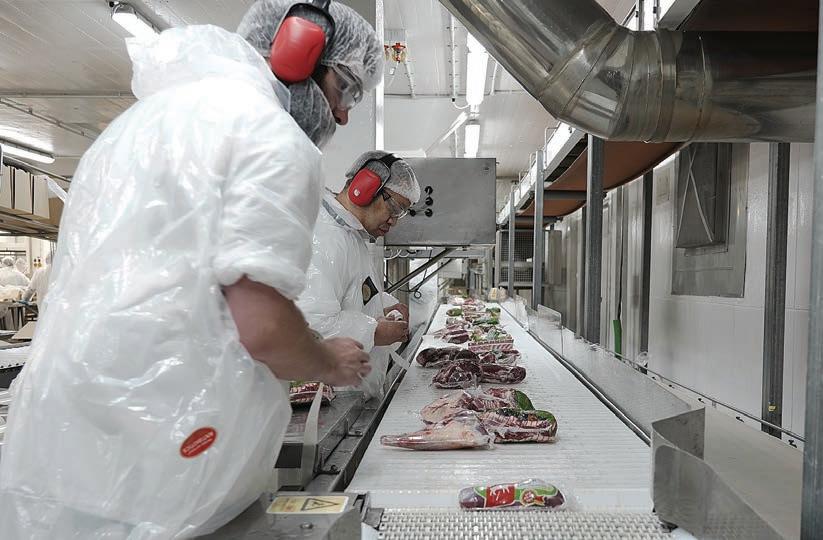
CONTRIBUTION: The Meat Industry Association says the red meat industry is earning important revenue for the country when other parts of the economy are significantly impacted by the covid-19 pandemic.
Funds boost for rural driver’s licence programme
Staff reporter
THE Government has committed an extra $600,000 in funding to support driver licensing and education programmes in rural communities across Aotearoa, Rural Communities Minister Damien O’Connor has announced.
The funding, provided by the Ministry for Primary Industries (MPI), will be spread over three years to boost the Waka Kotahi Community Road Safety Fund.
The money will be used to partner with community providers to deliver rural-focused driver licensing and education, which will include free driving lessons.
The aim is to help people to get jobs in the food and fibre sector and learn how to drive safely.
“Everyone deserves the chance to have the independence that comes with obtaining a full driver’s licence, and the job opportunities this can provide,” O’Connor said.
People in rural communities face higher barriers to getting their driver’s licence than those in our urban centres.
These include difficulties with accessing driver licence training.
“Increasing access to driver training and supporting more people in rural communities to get their full licence will also help make our roads safer for everyone who uses them,” Transport Minister Michael Wood said.
“It will complement driver licensing programmes already under way across the regions. By offering driver training specific to rural people, we’re supporting connections with rural employers and getting more people on their way to getting their full licence.”
O’Connor said this work builds on previous work funded by MPI earlier this year to help migrants in Mid Canterbury to get their driver’s licence and supports the Government’s goal of boosting jobs in the food and fibre sector.
“A central goal of our Fit for a Better World roadmap and our Opportunity Grows Here campaign is boosting food and fibre sector jobs for Kiwis,” O’Connor said.
PLAN: The Government-funded $600,000 injection will be used to partner with community providers to deliver rural-focused driver licensing and education, which will include free driving lessons.
